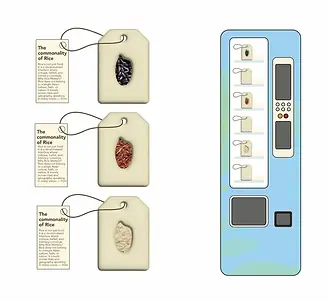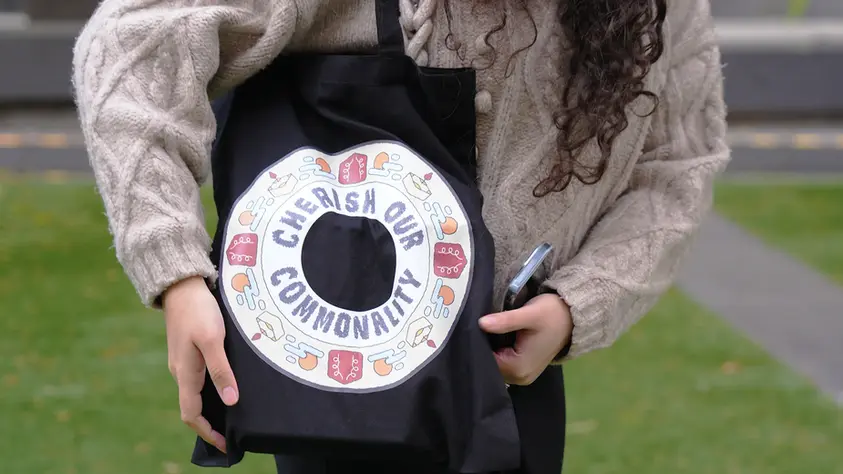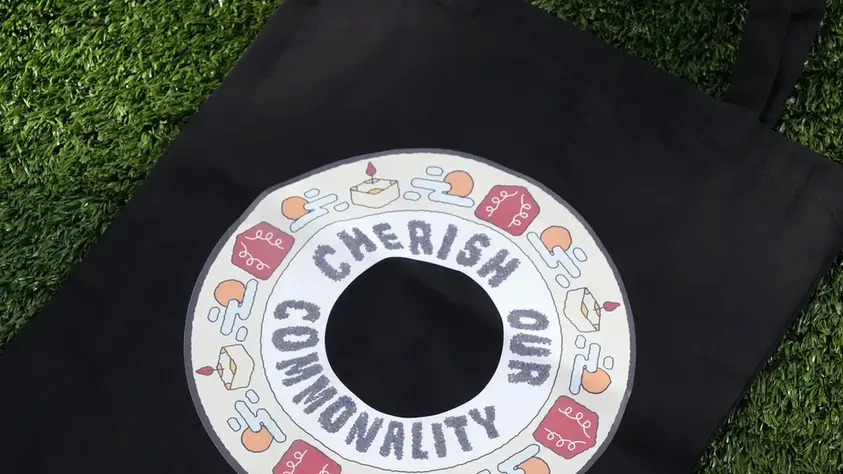
This project focused on developing merchandise for Multicultural Arts Victoria's new “Wokeshop” as a part of our Experimental Typography course at RMIT MCD. Our group chose the theme of “Rice” to create our merchandise proposals. Why rice?
Rice is not just food — it is a decentralized interface where critique, belief, and intimacy converge.
Rice does not belong to a single Asian culture, faith, or nation. It travels across class and geography, speaking in many voices — from everyday meals to royal offerings, from sacred traditions to shared memories — where multiple meanings co-exist and connect. We focused on three different types of rice to showcase this diversity.

Three types of rice, three tones, three ways we connect.


Cultural Critique — The cultural gap of how rice is perceived between the East and the West.
With a punchy and humorous slogan that targets Asian diaspora youth and second-generation immigrants, this design unpacks cultural bias and class tensions across the different food cultures across the world. We highlight the frustration that many people feel when they see others cook rice without washing it first. This t-shirt and hoodie design uses white Basmati rice from India.


Ritual & Belief — The symbolic role of rice in Asian religions and rituals.
With a more serious tone aimed towards people with Asian backgrounds, this design focuses on rice as a shared spiritual symbol across Asian cultures. Whether it be offerings during prayer or used during marriage rituals, rice is universally important in these areas. This tote bag design uses black rice from China and showcases various religious and ritual symbols around the circle.


Emotional & Everyday — Rice as a language of love and care in daily life.
With a heartwarming tone, this design is aimed towards families. It shows how we care for others and how that care is embedded within our phrases about food. Asking “Have you eaten?” is a common phrase to ask your loved ones, and this aims to capture that feeling. This lunchbox design uses red rice from Taiwan and includes many stickers that can be applied to create personalized designs.
These designs can also come included with NFC tags that link back to the MAV website when scanned with a phone. This is linked to a potential future approach featuring a randomized vending machine that dispenses rice bags, each embedded with an NFC tag. When scanned, the tag reveals a short description of the rice and its unique story. There are a total of three kinds of rice inside: black, red, and white, each carrying its own distinct meaning.
The excitement gained from the experience can help build a personal connection between the rice and the user. It serves as both a mental and material takeaway for the workshop visitors. We want to convey to the user that, despite the outcome, all uniqueness should be celebrated, just like embracing the randomized outcome of the rice bag and gaining a deeper connection to the rice.



Rice-Play Workshop
We invited people to feel the different kinds of rice and play with it, feeling their way into meaning through touch, texture, and shared emotion. Shaping rice into symbols and letterforms was described as therapeutic and calming. People created letters from different scripts, the initials of their names, and even wrote the word “Rice” in their own language. All these creations as well as our own process of creating these designs is showcased in this video:
About the Team
2³ (Two Cubed) is a multicultural group with team members from three different cultural and regional backgrounds. Our name includes the fact that we have two members from India, two from China, and two from Taiwan. During our discussions, we were able to gain a deeper understanding of each other and realized many commonalities in our experiences, cultures, and values.
Hence, the positioning and approach we focused on leaned towards being more holistic and objective, rather than highly impersonal. We are a group that values the differences we hold as cultures and as individuals, and we embraced and cherished this multicultural collaboration.
Aaron Kumar • Emma Huang • Haley Cheng
Jamie Xiao-Ru Sun • Max Zhang • Rashi Dawar











